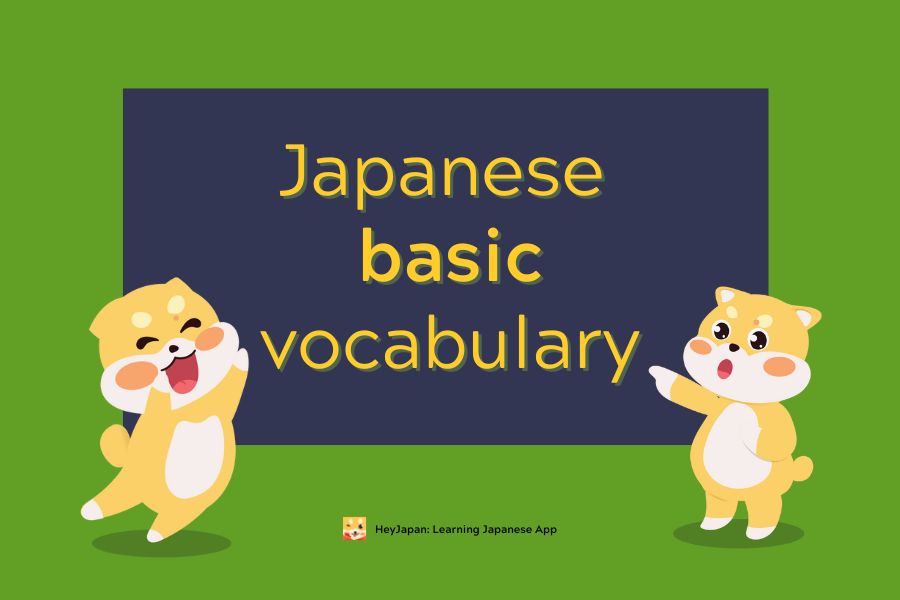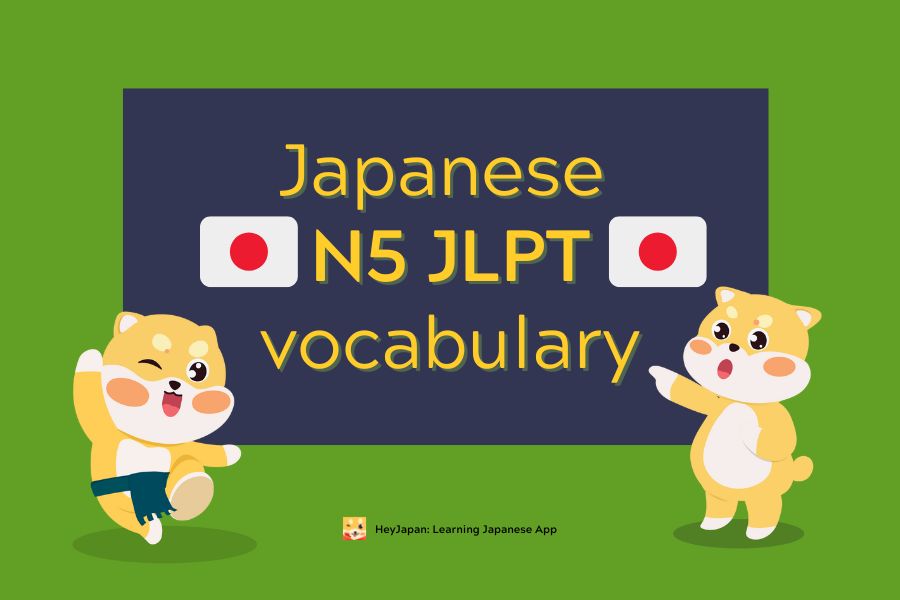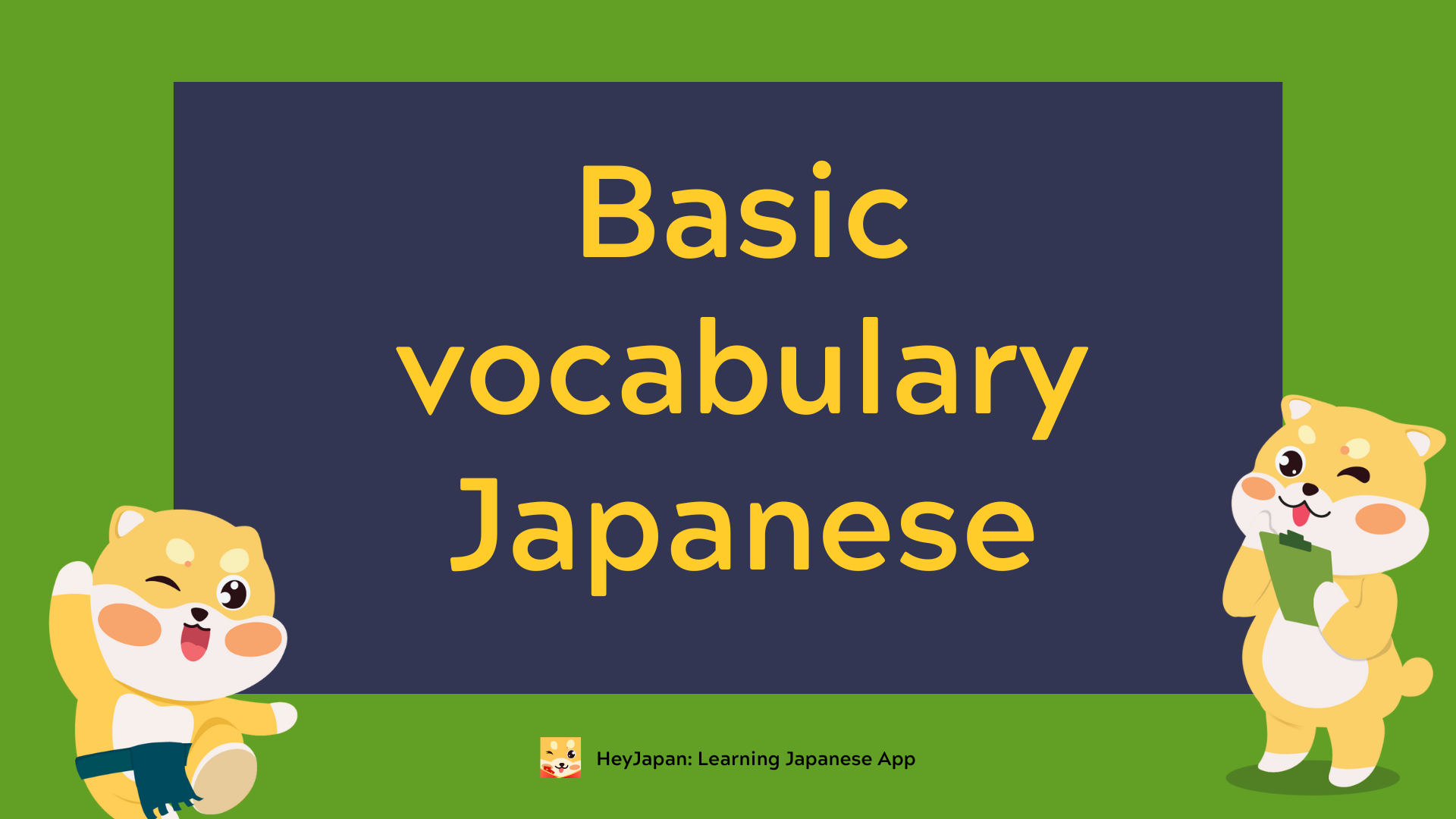- Why Learning Basic Japanese Vocabulary is Important
- Basic Japanese Vocabulary by Topic
- 1. Family
- 2. Time
- 3. Food
- 4. Emotions
- 5. Animals
- How to Learn Basic Japanese Vocabulary
- Benefits of Learning Basic Japanese Vocabulary
- Conclusion
Learning Japanese vocabulary for beginners is essential for anyone starting their journey in mastering the Japanese language. Building a strong vocabulary foundation will enable you to communicate effectively in daily life, understand basic sentences, and start your studies for the JLPT exams. In this article, we’ll introduce over 100 essential beginner Japanese vocabulary words, along with tips on how to learn them efficiently.
Why Learning Basic Japanese Vocabulary is Important
For any beginner, knowing basic Japanese vocabulary is the first step toward fluency. Mastering essential words allows you to express yourself confidently in everyday situations. Whether you're ordering food at a restaurant, introducing yourself, or asking for directions, these words will serve as the foundation for building your communication skills. Additionally, learning vocabulary is key to understanding grammar structures and preparing for exams like the JLPT.
If you're looking for a beginner Japanese vocabulary list, you’ve come to the right place. This guide provides a comprehensive list of useful vocabulary words to get you started with your studies.
Basic Japanese Vocabulary by Topic
1. Family

- 母 (はは, haha) - Mother
- 父 (ちち, chichi) - Father
- 兄 (あに, ani) - Older brother
- 妹 (いもうと, imouto) - Younger sister
Readmore: Japanese Family Vocabulary – Essential Words & Usage
2. Time

- 日 (にち, nichi) - Day
- 週 (しゅう, shuu) - Week
- 月 (つき, tsuki) - Month
- 年 (ねん, nen) - Year
3. Food

- ご飯 (ごはん, gohan) - Rice/meal
- パン (pan) - Bread
- 野菜 (やさい, yasai) - Vegetables
- 果物 (くだもの, kudamono) - Fruit
4. Emotions

- 喜び (よろこび, yorokobi) - Joy
- 悲しみ (かなしみ, kanashimi) - Sadness
- 幸せ (しあわせ, shiawase) - Happiness
5. Animals

- 犬 (いぬ, inu) - Dog
- 猫 (ねこ, neko) - Cat
- 鳥 (とり, tori) - Bird
- 魚 (さかな, sakana) - Fish
How to Learn Basic Japanese Vocabulary
To effectively learn basic Japanese vocabulary, use the following strategies:
- Flashcards: Create or use flashcards to memorize essential words. Apps like Anki and Quizlet are perfect for reviewing vocabulary regularly.
- Learn by Topic: Group words into categories like family, food, and emotions to make learning more organized and easier to remember. This method helps you understand how words are used in context.
- Practice Speaking: Try using the words you’ve learned in daily conversations with friends, teachers, or online language partners.
- Use Vocabulary Apps: Apps like Duolingo, Memrise, and Anki can help reinforce your learning with daily practice and spaced repetition.
If you're looking for an easy-to-follow elementary Japanese vocabulary list, many resources online provide structured word lists to help you start your studies in a way that's accessible and simple.
Benefits of Learning Basic Japanese Vocabulary
Mastering basic Japanese vocabulary provides numerous benefits:
- Boosts confidence: Knowing essential words will make you feel more confident when speaking Japanese in real-life situations.
- Foundation for grammar and reading: Vocabulary knowledge is crucial for understanding grammar and reading comprehension in Japanese.
- Preparation for JLPT: Learning basic vocabulary is a crucial step for preparing for the JLPT, especially for levels like N5.
A Japanese basic vocabulary list is an invaluable tool for beginners looking to enhance their language skills. With the right resources, you'll be able to build your foundation and gradually work your way up to more advanced language proficiency.
Conclusion
In conclusion, learning Japanese vocabulary for beginners is the foundation of your journey to fluency. By mastering essential words, you will improve your communication skills and prepare yourself for more advanced studies. Keep practicing, and soon you’ll be able to confidently navigate the Japanese language!








